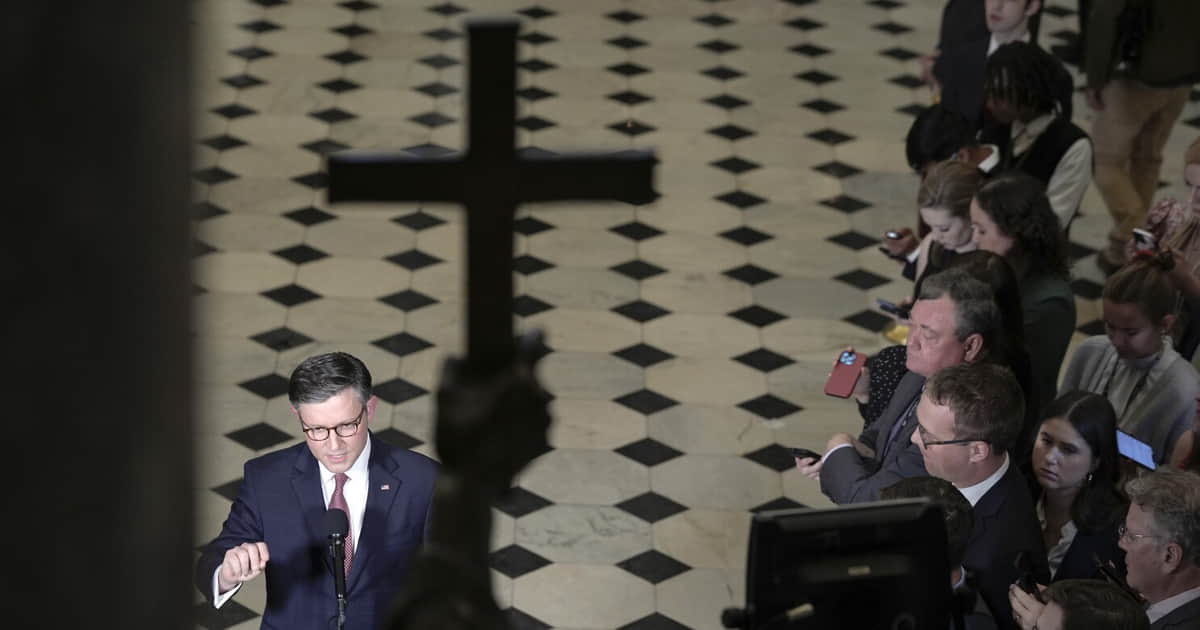Military Not So Keen on Being Part of Trump’s Deportation Plans
Donald Trump’s plan for using the military to carry out mass deportations is already drawing opposition from the Pentagon and even from at least one Republican senator. Several officials in the Department of Defense spoke to The Intercept anonymously, with one calling Trump’s proposal “absolutely insane.” “I never thought I’d see the day when this was a ‘serious’—put that in scare quotes—policy,” the official said, adding that there were significant logistical and legal obstacles to the “unrealistic and unserious” plan. Another official called the idea “insanity.” Senator Rand Paul told Newsmax Tuesday that such a military deployment would be a “huge mistake.” “I’m not in favor of sending the Army in uniforms into our cities to collect people,” Paul said in a possible nod to his libertarian roots. “I think it’s a terrible image and that’s not what we use our military for, we never have and it’s actually been illegal for over 100 years to bring the Army into our cities.” (The Brennan Center for Justice recently published a recap of the legal problems with what Trump is proposing.)Paul stressed that he wasn’t opposed to mass deportations, but believed they should be carried out by government agencies or local law enforcement instead of the military. “I will not support an emergency [declaration] to put the Army into our cities—I think that’s a huge mistake,” Paul said, later adding that “I really think us as conservatives who are supportive of Trump need to caution him about sending the Army into our cities.”Trump’s plan involves declaring a national emergency to use members of the military to carry out his ruthless deportation effort, unprecedented in its scale. Some of his senior advisers, such as Stephen Miller, have said that even some immigrants in the country legally, such as those under DACA and temporary protected status, would also be deported. Tom Homan, Trump’s “border czar,” has proposed that immigrants get a “grace period” in which they can self-deport, but still expects military support. At the very least, it seems that Trump is going to get significant pushback from military and defense circles. He may also encounter some resistance from fellow Republicans—although his critics there have a tendency to fall in line sooner or later.

Donald Trump’s plan for using the military to carry out mass deportations is already drawing opposition from the Pentagon and even from at least one Republican senator. Several officials in the Department of Defense spoke to The Intercept anonymously, with one calling Trump’s proposal “absolutely insane.”
“I never thought I’d see the day when this was a ‘serious’—put that in scare quotes—policy,” the official said, adding that there were significant logistical and legal obstacles to the “unrealistic and unserious” plan. Another official called the idea “insanity.”
Senator Rand Paul told Newsmax Tuesday that such a military deployment would be a “huge mistake.”
“I’m not in favor of sending the Army in uniforms into our cities to collect people,” Paul said in a possible nod to his libertarian roots. “I think it’s a terrible image and that’s not what we use our military for, we never have and it’s actually been illegal for over 100 years to bring the Army into our cities.” (The Brennan Center for Justice recently published a recap of the legal problems with what Trump is proposing.)
Paul stressed that he wasn’t opposed to mass deportations, but believed they should be carried out by government agencies or local law enforcement instead of the military. “I will not support an emergency [declaration] to put the Army into our cities—I think that’s a huge mistake,” Paul said, later adding that “I really think us as conservatives who are supportive of Trump need to caution him about sending the Army into our cities.”
Trump’s plan involves declaring a national emergency to use members of the military to carry out his ruthless deportation effort, unprecedented in its scale. Some of his senior advisers, such as Stephen Miller, have said that even some immigrants in the country legally, such as those under DACA and temporary protected status, would also be deported.
Tom Homan, Trump’s “border czar,” has proposed that immigrants get a “grace period” in which they can self-deport, but still expects military support. At the very least, it seems that Trump is going to get significant pushback from military and defense circles. He may also encounter some resistance from fellow Republicans—although his critics there have a tendency to fall in line sooner or later.



